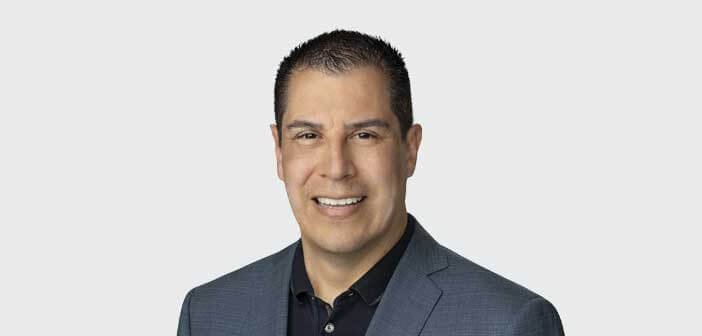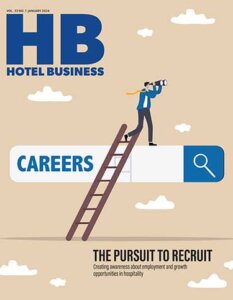Richard Sandoval’s first hospitality job was working at the front desk. It was there that he learned that hospitality is felt, not spoken to. He pointed out that it’s all about how you make people feel and what they remember. Now, as VP, operations for Spire Hospitality, he’s using this mantra to guide his team.
—Abby Elyssa
How are you working on employee retention at Spire?
A key point is a culture of partnership. Our industry has changed since the pandemic. As leaders, we need to recognize that and find ways to connect with our team members so they feel valued and part of something bigger than themselves. We are doing that by focusing on individual relationships with our direct reports. A chain reaction of connectivity. You have to understand their value propositions and how they define connectivity and support. What works for one does not work for all, and while there are commonalities, it is finding their individuality that makes them connected to the team. That builds retention.
How should hoteliers look to retain hard-working staff? What advice can you give?
Starting everything with respect and recognizing and rewarding positive behavior will always help retain positive performers. Finding ways to teach managers how to find time to do this is the current challenge. Strategize on the urgent but focus on the important is the call to action today. What helps with this is practicing delegation. Managers today are actually afraid of delegating because they feel the employee will ask for more money before they even learn the task. When they do delegate, they also tend to micromanage. This challenge can be minimized by delegating to those who want to grow and by creating a plan that has built in rewards for their execution. How you do this depends on many factors, but project incentives, temporary wage lift and actual promotion or increased compensation for those that succeed. When this becomes normal it is not about asking employees to do more with less, but a culture of partnership. When executed well the manager now has time focus on the important.
Why is team-member growth and development so vital in hospitality? How are you advocating for their growth?
Team-member growth has always been vital and still is today. The real challenge is that cuts and open positions have led to a lack of competency in our middle-management positions. We have lost our teachers and mentors, so we have supervisors and managers without a complete toolbox. This is where I rely on strength-based leadership. It is critical to understand what each team member does well and how you can use that skill set for their growth and your effectiveness.
Can you share an employee’s story that’s touched you?
I had a long-term driver at one of my hotels battling cancer, and I just happened to be at the hotel on his last day before surgery. He grabbed me by the shoulders and asked that we take care of his hotel until he could make it back. We sometimes forget that a hotel is a living organism and how important it is to many of our team members and the pride they take in not only what they do, but in what they are part of. If you think about this brief interaction, it is actually quite amazing. First of all, why is he thinking about the hotel and not his health and family? Next, he wanted to make sure there was a call to action before he left. This is leadership—and inspirational leadership at that. There was also no assurance that he was coming back, his cancer was that severe. This means that he was using the hotel and the role he served as inspiration to get healthy. If that is not powerful, you do not understand hospitality.
How should the industry work to share more stories like this?
I actually considered starting a podcast for this very reason. Anyone who knows me will tell you I have a story for every occasion. I feel the same way about the hotel business in that there is a story for every guest and team member. Most of these stories are touching, inspirational and will make you laugh or cry (or both), but I also think we have a duty to protect the integrity of our industry.
Aside from staffing, what other challenges is the industry facing? How are you managing those?
This cycle we are in is like nothing I have experienced. When you take the interest rate lift, increasing debt service, the pandemic hangover and the challenge to return to operating margins of 2019, it takes a tremendous effort to focus on the basics of hospitality and culture building. Even if line-level employees may not be able to articulate it, they can feel it. This is forcing us to look at our operating models and be creative in how we execute. Looking at how to complex positions, regionalizing support and grow your own talent is critical to finding success and delivering a rewarding team member and guest experience.
What should hoteliers be excited about in 2024?
They should be excited that we have always exited challenging cycles and flourished. There is a new day out there, and we have to maintain the energy and enthusiasm to execute. For those management companies that are finding success, there is also going to be opportunities for growth. From the beginning of the pandemic, there was an assumption that there would be assets changing hands and management contracts to be had. Well, that time is finally coming, and those companies that have the ability to find individual solutions for each asset and leverage their resources quickly will win the day. This is where Spire’s strengths lie, so I feel bullish on the next 18 months for industry


